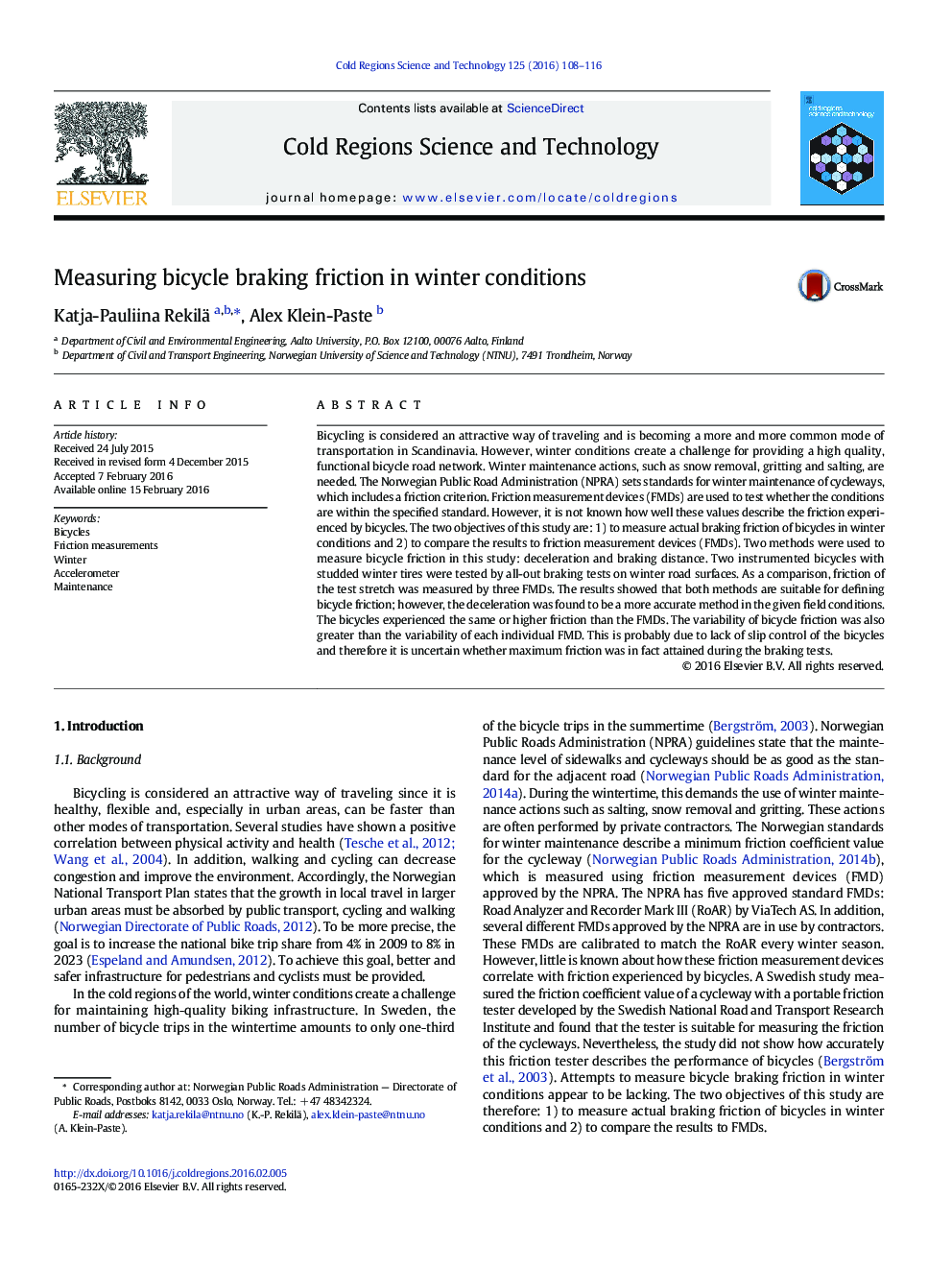| Article ID | Journal | Published Year | Pages | File Type |
|---|---|---|---|---|
| 6426629 | Cold Regions Science and Technology | 2016 | 9 Pages |
â¢In situ bicycle braking tests were carried out.â¢Bicycle braking friction was measured with two methods.â¢Perceived bicycle braking friction was compared to friction measurement devices.
Bicycling is considered an attractive way of traveling and is becoming a more and more common mode of transportation in Scandinavia. However, winter conditions create a challenge for providing a high quality, functional bicycle road network. Winter maintenance actions, such as snow removal, gritting and salting, are needed. The Norwegian Public Road Administration (NPRA) sets standards for winter maintenance of cycleways, which includes a friction criterion. Friction measurement devices (FMDs) are used to test whether the conditions are within the specified standard. However, it is not known how well these values describe the friction experienced by bicycles. The two objectives of this study are: 1) to measure actual braking friction of bicycles in winter conditions and 2) to compare the results to friction measurement devices (FMDs). Two methods were used to measure bicycle friction in this study: deceleration and braking distance. Two instrumented bicycles with studded winter tires were tested by all-out braking tests on winter road surfaces. As a comparison, friction of the test stretch was measured by three FMDs. The results showed that both methods are suitable for defining bicycle friction; however, the deceleration was found to be a more accurate method in the given field conditions. The bicycles experienced the same or higher friction than the FMDs. The variability of bicycle friction was also greater than the variability of each individual FMD. This is probably due to lack of slip control of the bicycles and therefore it is uncertain whether maximum friction was in fact attained during the braking tests.
